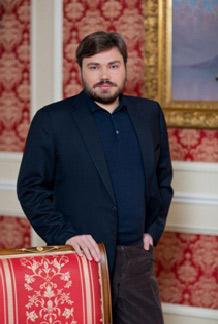On Wednesday the independent Russian newspaper Novaya Gazeta published a memo reportedly sent to the Kremlin in early February 2014, shortly before the overthrow of Ukrainian President Viktor Yanukovych, advising a strategy for taking advantage of the resulting chaos for Russia’s benefit. The steps outlined in the memo, reportedly sent from the offices of the politically influential Russian oligarch Konstantin Malofeev, are strikingly similar to the strategy Russia has, in fact, pursued.
Written at a time when the Russian government was still supporting Yanukovych, the memo predicts the downfall of the leader it describes as having “low moral qualities.” It advises the Russian government to take advantage of the “centrifugal forces” tearing Ukraine apart to eventually facilitate the eventual annexation of Crimea and eastern Ukraine into Russia. It suggests Russia support a “federal” structure for Ukraine, be “pro-Russian drift,” and mount a PR campaign to build enthusiasm in the Russian public for absorbing the regions.
Novaya Gazeta is well-known for its critical investigations of Russian politics. (Anna Politkovskaya, the muckraking reporter whose 2006 murder caused international outrage, worked for the paper.) The paper’s editor tells Anna Nemtsova of the Daily Beast that it received the memo from a trusted Kremlin insider who has a “strong sense” that President Vladimir Putin reviewed the document in February 2014. Spokespeople for Malofeev, whom I interviewed in Moscow in October, deny that the memo came from his office, but the report is going to add to the intrigue and mystery surrounding the ultrareligious investor and philanthropist.
Malofeev, who made his money in private equity and is a leading funder of Orthodox Christian and social conservative causes in Russia, is thought to be close to Putin’s inner circle. He’s currently under EU sanctions for supporting providing military support to the armed separatists, and some of the senior rebel leaders are his former employees. When I spoke with him, he denied the charges, saying that his foundation was providing “only food, medicine, and other things that could be used only for humanitarian purposes.”
In January 2014, before the memo was allegedly sent, Malofeev paid a highly publicized visit to Crimea while on tour with a collection of Orthodox icons. He says the trip wasn’t planned and his plane was diverted by weather. He also told me it was a mistake to read political motivations into his visit: “We are all Orthodox. There is nothing political about that.” Of course, for someone with Malofeev’s politics, the line between church and state is pretty thin.
Since the annexation of Crimea, he has also announced plans to partner with a French developer to build a “Tsargrad” theme park in Crimea presenting a family-friendly vision of Russian history. (Malofeev supports the eventual restoration of the Russian monarchy.)
Still, even assuming it’s genuine, I think it would be a mistake to read too much significance into the memo. Crimea’s status had been a sore spot in Russian politics for years, and I doubt Putin needed Malofeev to tell him that Ukraine’s linguistic and political divisions could be exploited. And I still think it’s a mistake to assume that Putin had his entire Ukraine strategy planned out in advance. Many of Malofeev’s domestic priorities—fierce opposition to gay rights, an emphasis on raising Russia’s birthrate, promoting religion and nationalism through the media—align pretty closely with Putin’s. It wouldn’t be a shock to learn they had similar thoughts about how to react to the chaos next door.
